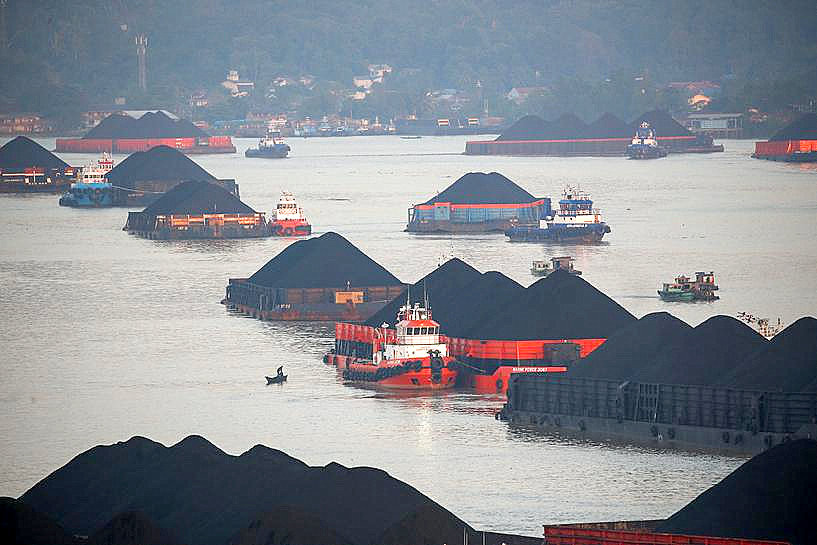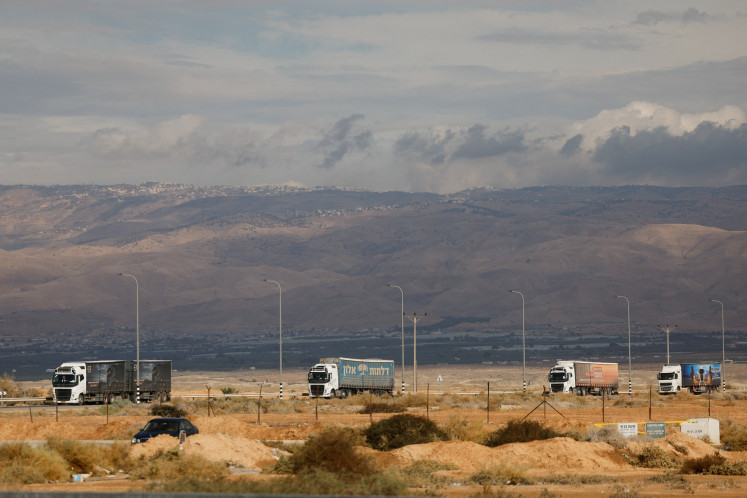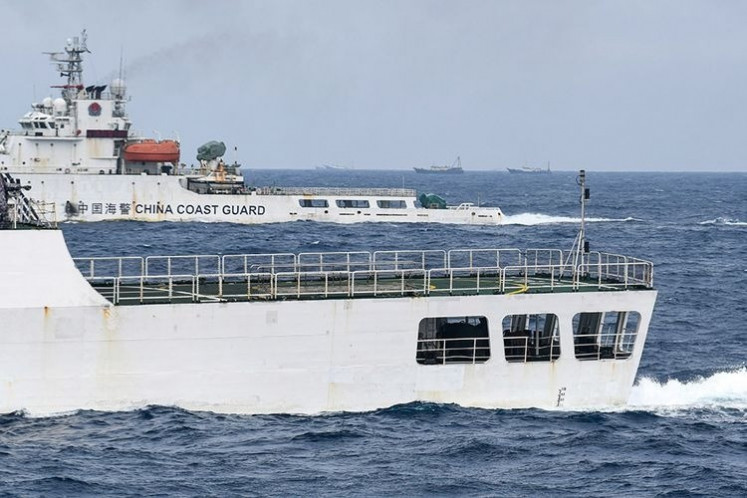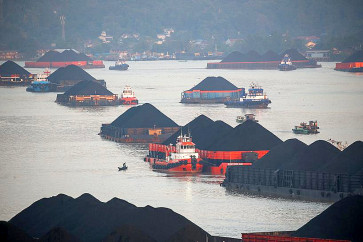Popular Reads
Top Results
Can't find what you're looking for?
View all search resultsPopular Reads
Top Results
Can't find what you're looking for?
View all search resultsMeet coal, Indonesia’s natural resource curse 2.0
Lest we forget, two months earlier, Indonesia joined other countries in pledging to phase down the use of coal, the world's dirtiest fossil fuel, as part of a campaign to stem global warming.
Change text size
Gift Premium Articles
to Anyone
W
ith world coal prices soaring to record highs last year, Indonesian miners had been laughing all the way to the bank until early this month when the government abruptly imposed an export ban to secure sufficient domestic supply and avert power shortages. But the problem was resolved within a week after protests from the miners and threats from foreign buyers, with exports resuming after coal producers agreed to meet their domestic market obligations.
The coalminers are back making tons of money, importers are getting their supplies and Indonesia is spared from a potential energy crisis. The nation benefits, too, in more ways than one, as coal exports helped the economy rebound in 2021, with growth predictions above 3 percent against a 2.1 percent contraction in 2020.
But has it really been a win-win solution for everyone with the resumption of coal exports?
Lest we forget, two months earlier, Indonesia joined other countries in pledging to phase down the use of coal, the world's dirtiest fossil fuel, as part of a campaign to stem global warming. The biggest losers in all this will be our children and grandchildren, who will have to bear the brunt of our failures.
At the United Nations Conference on Climate Change (COP26) in Glasgow, Scotland, in November, nations agreed to phase out coal, most aggressively with a 2030 deadline. Countries that heavily rely on coal, including India, China and Indonesia, have settled for a phase-down with a longer deadline.
While India and China are big producers and users of coal, they rely on imports to make up for the shortage. Indonesia has a surplus and is one of the world’s largest exporters.
Two months since Glasgow, those pledges have been thrown out of the window as countries scramble for coal supplies to keep their power plants running. World coal prices, which hit a historic high in October at US$269.50 per ton, has eased to $220 this week, but that is still much higher than $81 just a year ago, according to figures from Trading Economics.



















